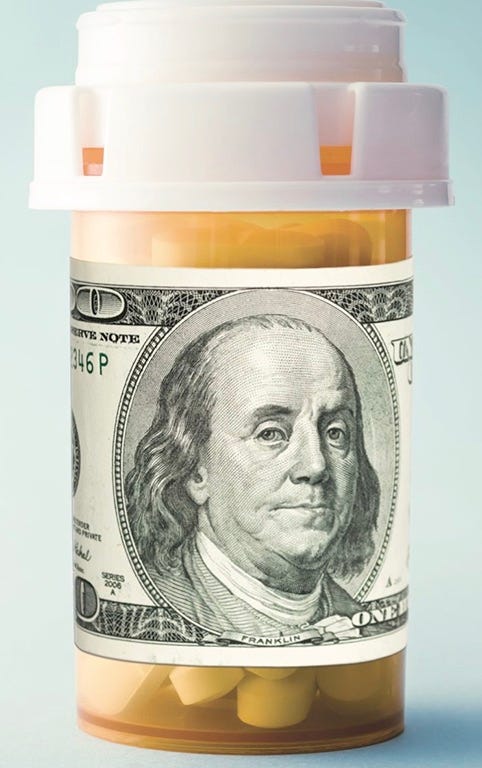Will Dem leaders drop drug price negotiations?
Centrist demands will result in higher prices, less benefits for all
The pharmaceutical industry’s grip on national politics will be on full display over the next several weeks. Some Democratic Party centrists have signaled they won’t sign onto legislation authorizing the government to negotiate drug prices.
If they get their way, the House and Senate leadership may have to deep-six many of the health-related provisions in the $3.5 trillion “Build Back Better” bill now before Congress. The Congressional Budget Office estimated the Medicare would save nearly a half trillion dollars over the next decade if drug prices negotiations are included in the bill. That’s money that the Democratic leadership needs to pay for a dental, vision and hearing benefit in Medicare, expand Medicaid and make Affordable Care Act plans more affordable.
Without it, the Democrats will be forced to either pare back their plans or advance a reconciliation bill that increases the deficit. Either approach would undermine Democratic Party prospects in the 2022 mid-term elections since the former will turn off the progressive left while the latter will alienate deficit-obsessed suburbanites.
There are no new arguments in this debate. The centrist Democrats, most of whom come from areas where drug and biotechnology firms have a strong presence, trot out the tired Pharmaceutical Research and Manufacturers Assn. (PhRMA) line that any controls on drug prices will slow new drug development. “It is imperative that we pass legislation that … preserve(s) our invaluable innovation ecosystem,” ten House members wrote to Speaker Nancy Pelosi last May.
Many patient advocacy groups, most of which receive substantial financial support from the drug industry, have also lined up against price negotiations. The industry also funds a host of Astroturf organizations like the Rare Access Action Project to lobby against drug price negotiations and other price control measures.
There’s no point in trying to counter the industry’s economic arguments one more time (for my review of the recent CBO study endorsing industry’s claims, see this GoozNews post). Suffice it to say that it is my firm belief that the hunt for new treatments for disease will go on no matter what the pricing environment because that is what medical scientists do.
When legitimate breakthroughs in medical science occur (let’s not forget a lot of industry R&D is thinly-disguised marketing), resources to bring that product to market will be found. If the private sector doesn’t want to invest because it deems the returns inadequate, then the public can make the investment.
Current case in point: The government spent an estimated $18 to $23 billion to hasten the development of new vaccines for COVID-19, which arrived just one year after the pandemic began. That including $2.7 billion in direct payments to Johnson and Johnson, Moderna, Sanofi and AstraZeneca for proof-of-efficacy clinical trials.
Sadly, the public never seems to understand its public officials have the power to mandate affordable prices without jeopardizing innovation. Last June’s Kaiser Family Foundation poll showed nearly 88% of the public believed allowing the government to negotiate drug prices should be a top priority. But when told lower drug prices will lead to less R&D, only a third of those polled still backed negotiations while two-thirds became opposed.
Given those political realities, I predict the Democratic leadership will jettison direct drug negotiations in favor of tinkering around the edges of price reform. The centrists, led by Reps. Kurt Schrader of Oregon and Scott Peters of California, issued an agenda that called for capping patient out-of-pocket costs; levying penalties for price increases higher than inflation; and allowing limited negotiations on off-patent drugs without generic competition because of pay-for-delay and other patent games.
Unfortunately, that will raise far less than the half trillion dollars (over ten years) raised by direct price negotiations. If Pelosi and Schumer can’t convince the centrists to endorse the bolder agenda, something else will have to give.




